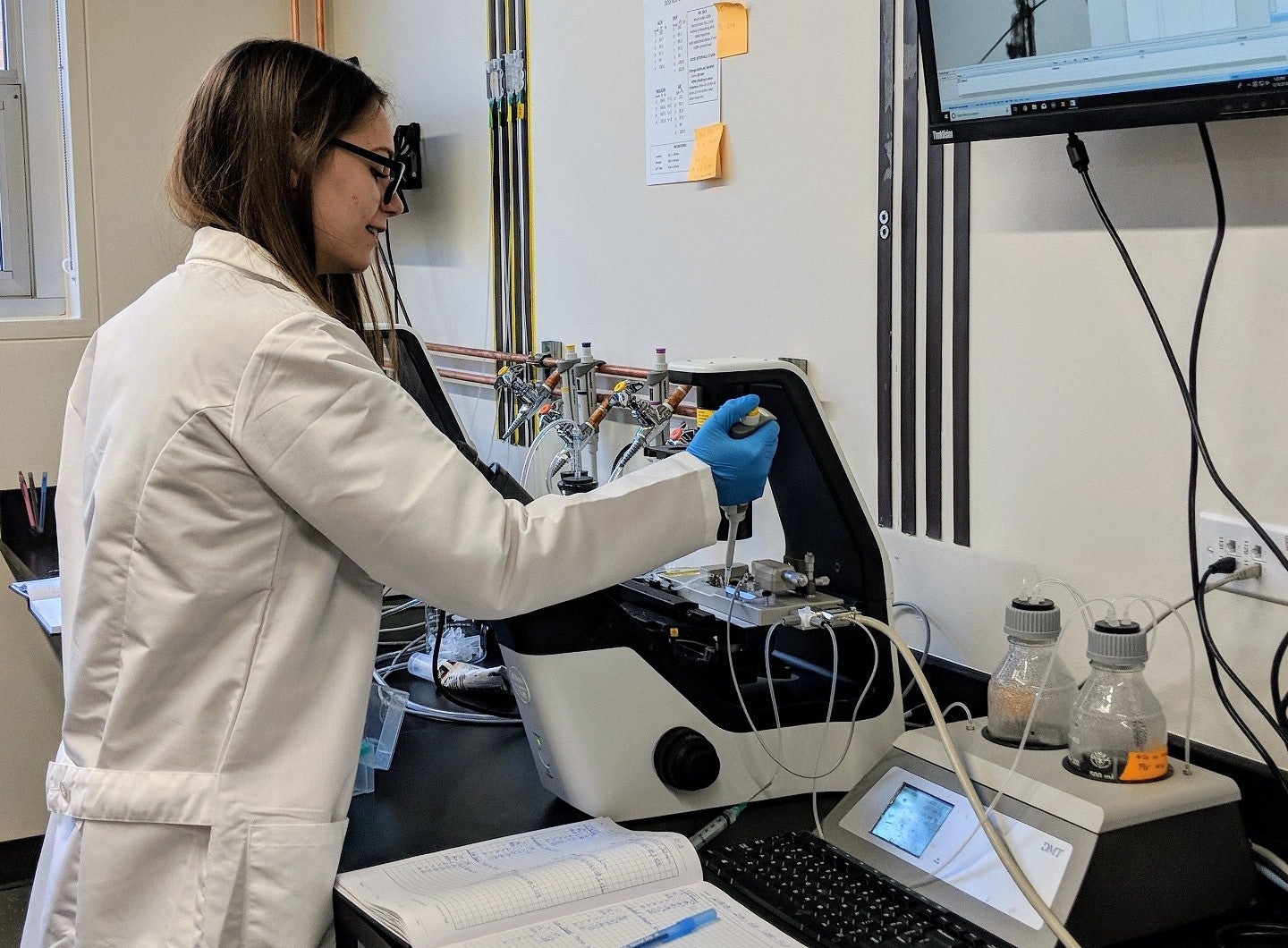PI’s Involved: Ashley Walker of Human Physiology
More than six million Americans are living with Alzheimer’s disease, and that number is quickly growing. Most of the drugs being tested for Alzheimer’s fail in clinical trials. While some medications can slow the progression of the disease, there is no known effective way to reverse or stop it. Ashley Walker, professor of Human Physiology, is using a $2.1 million grant from the National Institutes of Health to change the direction of Alzheimer’s research.
Walker and members of her lab theorize that these drugs are unsuccessful because they aren’t targeting the cause of the disease. Past research has focused on brain cells as a source; however, Walker and her team believe damaged blood vessels are a key factor in the destruction we see in the brain.
Blood vessels deliver blood, oxygen, and nutrients to the brain, as well as clear waste from the brain. But they stiffen with age. Walker’s research seeks to identify how this stiffening affects the brain and whether it could be a cause of Alzheimer’s disease. If so, she hopes to understand the chain of causation well enough to find methods to prevent and treat the disease through intervention or medication.
After spending graduate school working on projects to understand why blood vessels become impaired with age, Walker continued to study both the cause of such impairments and the health consequences. “When I learned of the strong connection between unhealthy blood vessels and Alzheimer’s disease, I saw an opportunity to apply my expertise in blood vessel aging to push our understanding forward,” she said.
The grant gives the team five years to test their hypotheses and further understand how stiff blood vessels play a role in cognitive impairment. It will also fund a graduate student to work on the project, helping to train the next generation of disease researchers.

